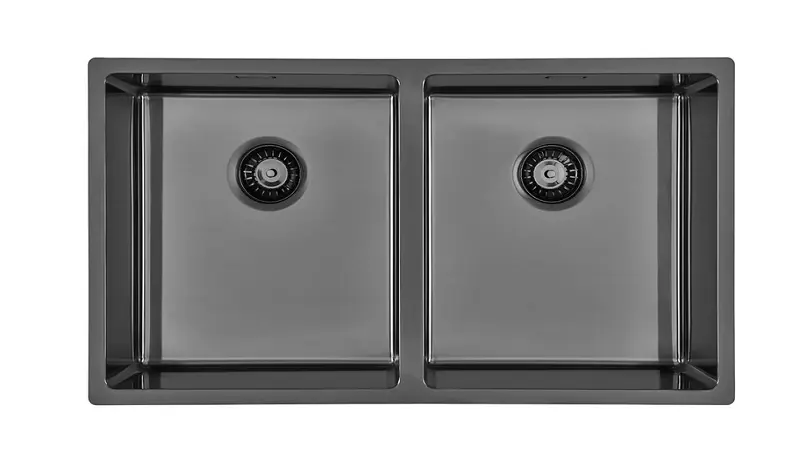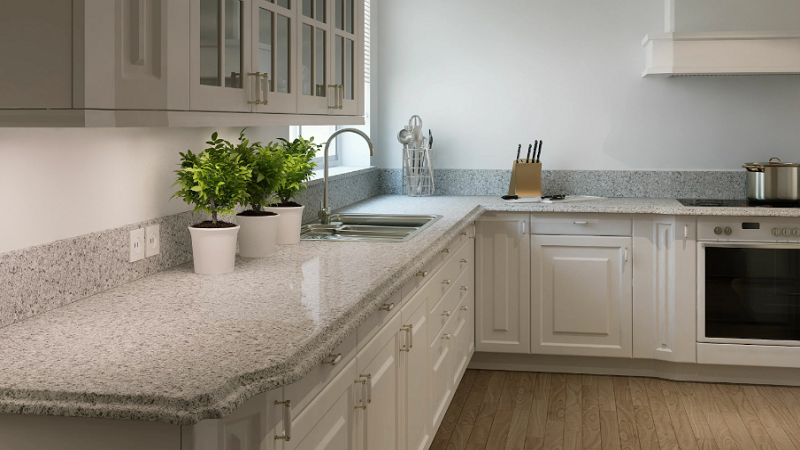Kitchen sinks are available in a wide range of materials. However, it turns out that stainless steel is perhaps the most popular choice for most people. By the way, some of the alternatives include:
- Granite Composite
- Fireclay
- Porcelain
- Acrylic
- Solid Surface
- Copper
- Cast Iron
- Glass
- Concrete
- Quartz Composite
The presence of so many other options therefore raise questions as to why stainless steel is that common. Durability, modern appeal, easy maintenance, cost-effectiveness, and stain & heat resistance are among the several reasons why. You can read this article for more information on this.
While stainless steel sinks offer these much and even more, proper care from users is necessary. To this end, some often-ignored tips to help maintain them will be covered here.
Essential but Overlooked Maintenance Secrets for Stainless Steel Undermount Sinks
Pretty much everyone who uses a kitchen sink understands the need for its maintenance. However, it turns out some of the essential tips are not adhered to, which could be down to ignorance or oversight. Some of such care tips are discussed below:
1. Don’t Use Harsh Chemicals
It is good that people understand the need to have their stainless-steel kitchen sink stain and dirt-free. However, the cleaning process needs to happen the right way.
Speaking of the right way, you should steer clear of harsh chemicals. Prime examples include ammonia and bleach. While these are capable of doing a thorough cleaning job, the aftermath is the problem as the sink’s finish will be damaged. As a result, you should just stick to warm water and a mild dishwashing solution for daily cleaning.
By the way, certain stains are beyond what warm water and mild dishwasher solution can effectively and immediately resolve. Baking soda and white vinegar can come to the rescue at such times.
For starters, a reasonable amount of baking soda needs to be sprinkled over the sink surface. Then a sponge soaked in white vinegar should be used to scrub the sink, especially those parts with deep stains. Of course, there are commercial cleaning solutions for this task. However, the rule remains steering clear of options with harsh chemicals.
Whether it is ordinary or deep cleaning as explained above, thorough rinsing and drying afterward is necessary.
2. Follow the Grain
The process of cleaning a sink is supposed to improve its looks. However, the reverse can be the case when it is not properly cleaned. Besides the use of harsh chemicals as discussed above, cleaning against the grain’s pattern can cause this.
As a result, you should never scrub or even polish the sink against the grain’s direction. Scratches are more likely to be left if this tip is not taken seriously. Furthermore, be mindful of the kind of sponge used for cleaning.
3. Keep Metal Utensils Out
Some of these tips are more unknown to people than others. Well, this maintenance tip for stainless steel undermount kitchen sinks is one of the least known to many people. This is because it takes an understanding of how rust and corrosion at large work to understand it.
You see, stainless steel sinks are designed to be rust-resistant. However, this is provided the right conditions are met. One such condition is keeping the sink as dry as possible since trapped water creates an ideal environment for rust spots to set in.
The minute reactions between metal utensils, which are often made using different metallic materials only make it worse. However, this is something that takes a prolonged time to happen.
In essence, taking metallic items out of the sink as soon as possible is important. The same applies to keeping the sink dry.
4. Keep Food Debris Out
Stainless steel sinks serve a functional purpose. However, this does not rule out the fact they are supposed to enhance the look of the kitchen.
In the spirit of ensuring this, things that cause the discoloration of the sink surface should be avoided. One such is leaving food debris sitting unattended in the sink.
For starters, this can cause stains, some of which are harder to get rid of, eventually leading to the discoloration of the sink’s finish. This is more of a concern with certain food debris than others. Prime examples include:
- Tomato-Based Foods – Such as ketchup, salsa, and tomato sauce
- Leafy Greens – Such as spinach
- Tea or Coffee
- Wine
- Egg Yolks
- Citrus Fruits – Such as lime, lemon, and orange peels
- Beets
- Mustard
- Salt
- Vinegar/Pickled Foods
Food debris containing the above-listed is capable of causing stains and eventual discoloration to a sink’s finish for several reasons. For example, it is the presence of tannins in foods like tea, coffee, and wine. In the case of citrus fruits, tomato-based foods, and vinegar/pickled foods; it is the acidity levels.
The point remains to keep food debris off your stainless-steel sink as soon as possible. By the way, this is also for health and hygienic reasons. This is as doing otherwise can result in:
- Bacterial Growth
- Cross-Contamination
- Foul Odors
- Pest Attraction
Overall, people’s health can be compromised as a result of the aforementioned. For more information on this subject, you can see: https://www.fsis.usda.gov/.
5. Polish Your Sink
Newly purchased and installed stainless steel sinks have an appealing look, especially because of their finish. However, prolonged use and a couple of other factors can make the surface lose its shine.
Thankfully, something can be done about this. However, many people are either unaware of this or simply undermine the importance. Well, you should not do so. The shine of the stainless-steel sink finish can either be maintained/restored with a polish or stainless-steel cleaner.
Final Note
A well-maintained stainless steel kitchen sink serves its functional and aesthetic purpose. This is in addition to contributing to the well-being of people who use and live in the vicinity where it is stationed. Overall, some of the reasons to prioritize the tips shared here include:
- Rust & Corrosion Prevention
- Avoiding Stains & Discoloration
- Prevention of Foul Smell
- Protection against Scratches
- Prolonged Sink Lifespan
The list goes on. So, ensure that these tips are put to good use in your best interest.




